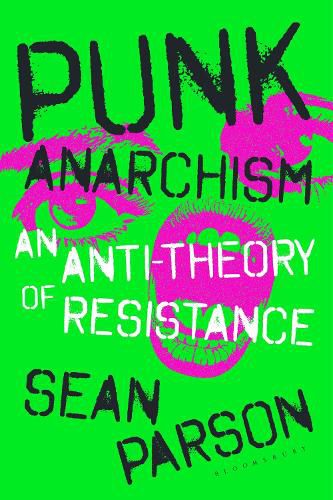Readings Newsletter
Become a Readings Member to make your shopping experience even easier.
Sign in or sign up for free!
You’re not far away from qualifying for FREE standard shipping within Australia
You’ve qualified for FREE standard shipping within Australia
The cart is loading…






Punk Anarchism is a radical critique of contemporary politics and offers an alternative framework rooted in anarchism, punk rock, dadaism, and situationism.
It argues that traditional approaches to political change are ineffective in the face of the climate crisis and the failures of liberal institutions. Instead of focusing on reformist measures like recycling and voting, the book advocates for a nihilistic approach that rejects the possibility of meaningful change within the existing political system. Drawing on historical examples and cultural movements like the Russian and Japanese nihilists of the 19th and early 20th centuries, it calls for a politics of pure negation, centered on the destruction of the current social order rather than its reform. The book critiques liberal and leftist theories for their complicity in maintaining oppressive structures and advocates for a revolutionary politics that embraces resentment against the wealthy and rejects hierarchical power dynamics. It argues that resistance should be motivated by a sense of playfulness and enjoyment rather than hope for a better future. Ultimately, Parson proposes an anti-theory of negation as a way to imagine political agency beyond traditional frameworks.
$9.00 standard shipping within Australia
FREE standard shipping within Australia for orders over $100.00
Express & International shipping calculated at checkout
Punk Anarchism is a radical critique of contemporary politics and offers an alternative framework rooted in anarchism, punk rock, dadaism, and situationism.
It argues that traditional approaches to political change are ineffective in the face of the climate crisis and the failures of liberal institutions. Instead of focusing on reformist measures like recycling and voting, the book advocates for a nihilistic approach that rejects the possibility of meaningful change within the existing political system. Drawing on historical examples and cultural movements like the Russian and Japanese nihilists of the 19th and early 20th centuries, it calls for a politics of pure negation, centered on the destruction of the current social order rather than its reform. The book critiques liberal and leftist theories for their complicity in maintaining oppressive structures and advocates for a revolutionary politics that embraces resentment against the wealthy and rejects hierarchical power dynamics. It argues that resistance should be motivated by a sense of playfulness and enjoyment rather than hope for a better future. Ultimately, Parson proposes an anti-theory of negation as a way to imagine political agency beyond traditional frameworks.